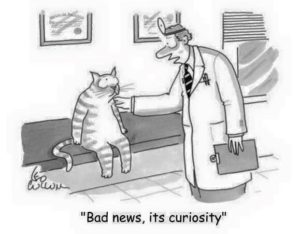Sometimes I am simply overwhelmed by those who would drag me into a mindset that is just not where God would have me be. I hear a million voices all crying in my ear to dissuade me from what I should be and what I should do. Do this, do that, give here, drive this, eat this, and so on. These voices tell me I should be something I am not. And because I am not what they think I should be or do what they would have me do, they fully expect me to feel guilty. Their guilt trips are saunters I refuse to take.
My actions need to be metered by a firm foundation. I believe the foundation stone of my life is God. “My hope is built on nothing less than Jesus blood and righteousness. I dare not trust the sweetest sound, but wholly lean on Jesus’ name.” He is unchangeable and my rock.
The second layer in my life cake is my morals. Morals are those beliefs lines of behavior that set boundaries for me to live. They, while not as rock hard as my foundation, but are based upon my foundation. This morality dictates my actions and things I allow in my life. My morals are things I will not do, and the things I will not allow in my life. Conversely, my morals show me what I can do and what I need in my life. They are very limited in scope and set by my understanding of God. God does not change and therefore my morals do not change without long study and a fresh revelation of God’s will for my life.
On top of my morals are my ethics. Ethics are based on the society in which I find community. Like Paul to the Corinthians said about eating meat sacrificed to idols: if your brother is offended by it don’t have that meat for dinner. In polite society, we crop our words to not offend, though the words themselves do not breach our moral compass. While serving at our local food pantry serving those who don’t have food to eat, I don’t wear my “Make America Great Again” hat or eat a candy bar, because it might cause hard feelings. Never-the-less I still bought the hat and I enjoy a good chocolate once in a while.
The last level of my behavior and actions is my preferences. These are determined by me. As long as they do not hurt others, as long as they don’t violate my moral understandings, and as long as they are not an affront to the God I serve, I can do what I prefer. It is not a willful breaking of God’s will, or my moral compass, or my ethical forbearance. My preference is my want to do and when I do it, it is good.
At issue is that the aforementioned million voices want to dictate my actions which are in my preference area, and push them into the ethics area. Furthermore, they would push my ethics down to the moral and my moral area away from my God the foundation. What’s more, they would do it in the name of humanity, globalization, political correctness, awareness, and whatever is the current issue of the day.
The voices cry out, “If we could all just become one, if we could get rid of our borders and prideful nationalism—sit at one table and get along, we could put our heads together and solve the problems. We could end world hunger; we could put an end to all the bloodshed and warfare. We could make this world a better place.”
I can understand how many would think that way and wonder how anyone could question it. If I have a new awareness of the terrible in my world, I should change my preferences. They would dictate what car I drive because doing so will save the planet. I should give to every cause because I have so much. We need to open our borders to everyone because the U.S. has always been a nation of immigrants. We need to install a sense of globalization; there is no need for borders.
All good thoughts. But my God tells me the earth will be done away with someday and that I cannot save it. All my personal preferences will not stop the end of the world. I have a charge to do what I can and I do work and provide for the poor around me. I give to those affected by great disasters in my country. I feel the pain of those who are hurt around the world. I give where I can. But in reality it does not make that much of a difference. Yet the Bible tells us that in the last days a globalization movement will produce just the opposite of all that. It will produce wars and famine and terrible suffering throughout the world like never before. In the book of Revelations, we see a globalization movement in both the political and religious world and it cannot be stopped.
So all those who would like my time or talent or treasure, make your pitch, I will listen and feel your pain and passion, but if I don’t do something about it, it does not mean that I don’t care, it is just my preference which is following my ethics, which is following my morals, based upon the revelation of God.
I Timothy 4:1-5
But the Spirit explicitly says that in later times some will [a]fall away from the faith, paying attention to deceitful spirits and doctrines of demons, 2 by means of the hypocrisy of liars seared in their own conscience as with a branding iron, 3men who forbid marriage and advocate abstaining from foods which God has created to be gratefully shared in by those who believe and know the truth.
4 For everything created by God is good, and nothing is to be rejected if it is received with gratitude; 5 for it is sanctified by means of the word of God and prayer. (Italics added by me)
What do you think, add a comment.

 The only being that is completely self-sufficient is God, all others must and are driven to consume. If you don’t, you die. Whether it is good for you vegetables, or not so good for you half-pound hamburger covered with cheese and accompanied by greasy fried potatoes, you will consume. Again, this is a motive or a decision point that you must come to order for you to live. The desire to incorporate something outside of yourself is neither right or wrong, it is part of being God’s creation. We come into the realm of good and bad is when we start making the decision as to how to satiate that desire.
The only being that is completely self-sufficient is God, all others must and are driven to consume. If you don’t, you die. Whether it is good for you vegetables, or not so good for you half-pound hamburger covered with cheese and accompanied by greasy fried potatoes, you will consume. Again, this is a motive or a decision point that you must come to order for you to live. The desire to incorporate something outside of yourself is neither right or wrong, it is part of being God’s creation. We come into the realm of good and bad is when we start making the decision as to how to satiate that desire.

